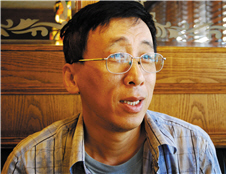Passion and Joy in the Woods - An Interview with Yu-jen Wang, Volunteer Shei-Pa National Park
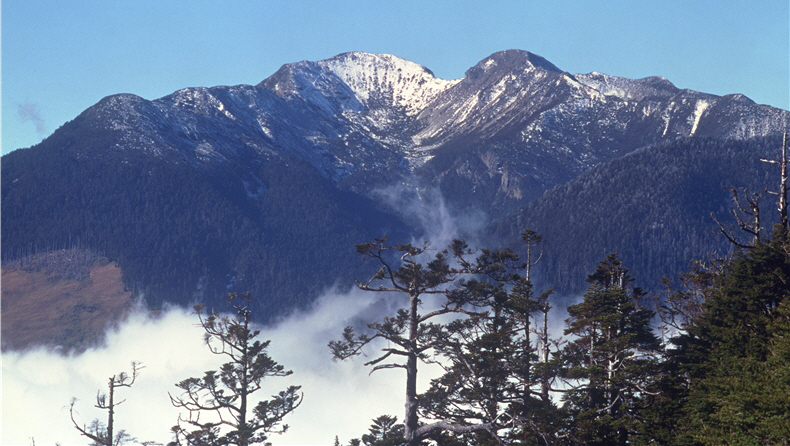
He is amusing; “Things not Taught at School” is his representative TV show.He is witty, having hosted several highly popular radio shows.He has literary talent; his minimal fictions have swept literary circles.
Yu-ren Wang, a man with a spectacular past, is now a volunteer in Shei-pa National Park (SPNP). Yes, he has another name: Ku-ling.
Having been a prolific writer, a popular radio show host, and a well-known TV host, Ku-ling retired resolutely during the prime of his career and chose to become a volunteer in the national park. After years of reclusion, Ku-ling still has that witty glamour when he speaks in his uniform.
Enjoyment in the Mountains
“When I decided to apply for the volunteer position in SPNP, I was really afraid people there wouldn’t believe me,” Ku-ling started humorously. “So I wore a moustache and used my original name for the interview. Though they found who I was, they let me finish the interview and take classes, put me on probation for a year. Then after ten shifts, my volunteering life began officially.”
However, animal and plant knowledge is a whole new domain to him. “I was worried at first. How can I acquaint myself with the 270,000 kinds of plants? Thanks to Mr.Zeng-guan Wang, an experienced volunteer previously in Yangmingshan National Park, I could get ready within a shorter time. The night before my first tour, I had not slept, extremely worried.” It is just hard to imagine a veteran like Ku-ling would have such a moment.
Ku-ling has paid a lot of efforts to this work. “The month in Wuling has been the most substantial. For a whole month I’d read and memorized. I also drew birds, which was of greater help than reading illustrated handbook or taking pictures of birds.
” Ku-ling said before each tour he would warn the tourists. “I would say, ‘you can ask me questions. If I say “good question,” it means I will answer it. And “the question is complicated” means I don’t know.’” He offered a tip: going through the route before each tour. A blossoming flower would definitely be asked about, so its name and location should be memorized right away. He called this “plant geography.”
Learning is like falling in love; one would want to know the name and address of the girl he likes. “Out of a serene love, you are willing to do some research for her,” described Ku-ling.
Humor and wit are Ku-ling’s biggest charm, and he does exploit them. “I take red dot stickers with me during the tour, and after my guidance, he who answers my question right will get one sticker. In this way, tourists would earnestly listen to the guidance and would not ask digressive or irrelevant questions. Very often I see moms urging dads to listen well to collect the stickers for their kids,” laughed Ku-ling.
Indeed, some tourists ask questions randomly when they feel bored with the guidance. Though it is impossible for the volunteer to memorize everything in the park, he can still make both sides happy and satisfied with a few tricks.
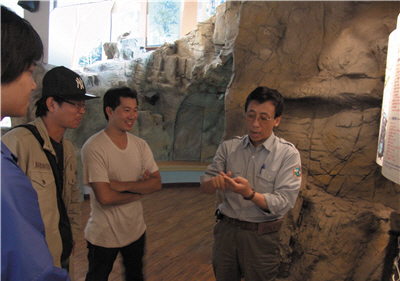
Interview & Text/ Wan-ching Lai
Photo Provider/ Yu-jen Wang, Yen-ling Chang
Translator/ James Chang
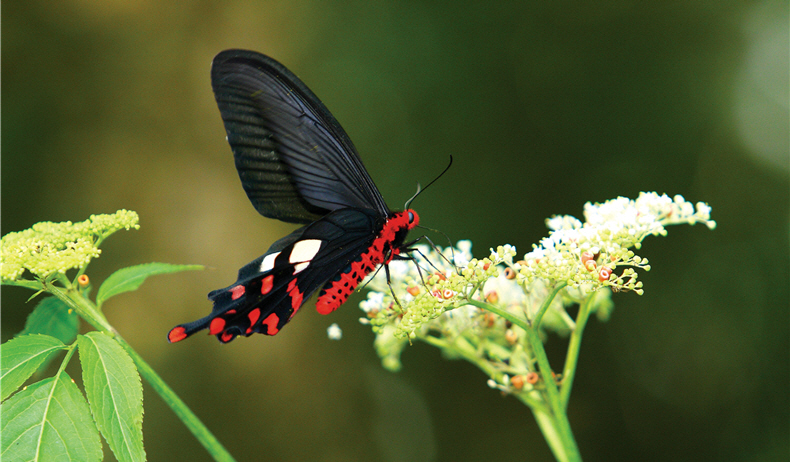
Guiding with Artistry
Ku-ling deems guidance an art. Many docents are knowledgeable about animals and plants, yet to fully deliver the knowledge to tourists in a simple way requires tips. “A lot of national park volunteers deliver only 60% of what they know, while I speak 60% more than what I know,” noted Ku-ling.
Ku-ling explained humbly that he can provide a simple and clear guidance because he does not know too much. Years of experience has equipped Ku-ling with solid skills, and has helped him build up his own ecology notes. “I could not understand how volunteers recognize all the different voices of birds. But now I am able to do that, too, only with some twists. For example, Yuhina Brunneiceps sings ‘tu~mijiou’ (meaning ‘vomiting rice wine’ in Chinese); then you hear ‘jijiou~jijijiou’ (‘help’), that’s a Parus Monticolus; If you hear ‘ni~hueicyu’ (‘go back’), it comes from a Cettia fortipes. When you do it in an interesting way, it is easier to memorize these voices.”
Making tourists learn with fun is the feature of Ku-ling’s guidance. Intense biological knowledge becomes interesting out from his mouth. “You think plants have no intelligence and feelings? Wrong! They know how to cheat or fake illness. The flowers of both Chinese Hydrangea (Hydrangea chinensis Maxim) and Poinsettia (Euphorbia pulcherrima Willd. ex Klotzsch) are not attractive, yet they have beautiful paleae and bracts to allure butterflies to take their nectar. It is just the same with human beings: one need to learn to make up and dress up if not good looking.”
There is another plant sambucus formosana, whose flowers are almost invisible, yet because of her ‘cyathium,’ it still attracts many insects. “This teaches us that even without beauty, one can still be popular with good services,” explained Ku-ling impressively.
Actually a volunteer does not have to know everything; what matters most is to infuse the idea of environmental protection unobtrusively into the minds of tourists. When they feel interested in nature, they would want to protect it.
Life Enriches His Guidance
Being a celebrity could be a burden; Ku-ling is often recognized by tourists. “I would say, ‘many people say I look like some person; true, cause I wouldn’t look like a monkey. Some also say I am better-looking than in TV; to tell you the truth, I am also better-looking than in a refrigerator.’” Interestingly, there is an unwritten rule among the volunteers of SPNP: one would be fined NTD100 by calling Ku-ling Ku-ling. “In the national park, tourists cannot request for a specific volunteer unless it is with group reservation. I cherish each tour with different people. Volunteering is a new identity for me, and a job I love. I don’t take pictures or give autographs during the tour. But after the tour, it’s fine, since I love to interact with tourists.”
Previous host experience is helpful for Ku-ling’s volunteer work now. SPNP also enlists his help to do the training of aboriginal volunteers or other advanced trainings. “The feature of an aboriginal volunteer’s guidance is ‘natural,’ since he lives right there in nature. He can tell the tourists that Corchorus capsularis L. is what they use to weave things, and when seeing a split pine cone, he can tell what animal has done it. Encouraging them to ‘share their lives in nature’ is the start of the training.’
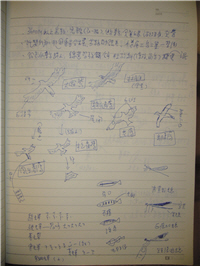
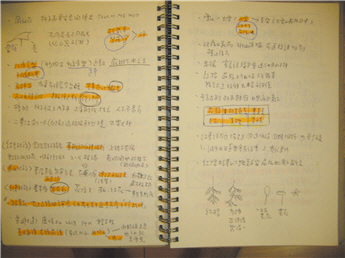
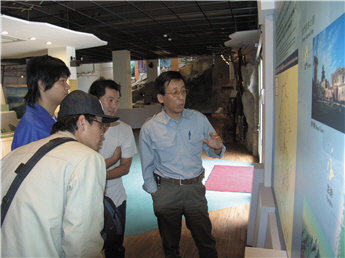
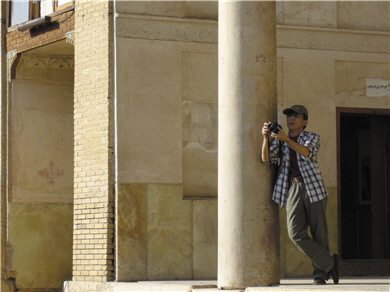
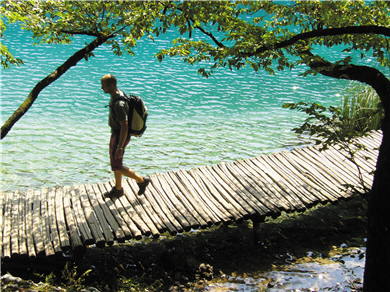
Ecotourism, a Feature of Taiwan
Ku-ling then noted gravely about why Taiwan has least tourists among the Asian countries while it is so beautiful an island. “We have a lot of beautiful places which can only be reached after a long trudge. People are easily discouraged by that monotonous and dull walk. But it would be different with some guidance along the walk, like the appreciation of spider webs and stories behind fallen leaves. Undoubtedly we have the potential to develop ecotourism, yet it can’t be done without active participation of volunteers.”
Even during his reclusion, Ku-ling has been offered many opportunities to produce new shows. But what he really wants to make is one about ecology travel. “Traveling over mountains is still too hard for current exterior production. I wish to take people to reachable places with rich hospitality and ecological beauty.”
When asked of the biggest impression during these years in mountains, Ku-ling said softly, “I’ve acquired not only biological knowledge, but some valuable attitude toward life. We don’t hit a moth dead just because it might be poisonous.
All the volunteers here respect and cherish lives. Their passion toward nature is huge, while the material desires are cut down to the minimum. They eat meagerly and live humbly without a grumble. Yet they are willing to pay dearly for a telescope just because it is a tool that can drag them closer to nature.”
Ku-ling has not stopped traveling because of his volunteering work. He gathers people who share his interests. “I have a hiking club, and we have hiked every trail of Taiwan; I organized a tour club, which holds 3-day tours; I also have a gourmet club; I organized a Taichi club to maintain health and spirit; there’s finally a globe club, and we have been to more than 50 countries so far.”
The colorful life of Ku-ling is something to aspire after, and we are jealous of those who have walked in the forests with him. Sincerely Ku-ling gave his advice: go into the national parks! There are three precious things in the forests: oxygen, phytoncid, and negative ions, which give you health and happiness without any charge. In Chinese, the word “celestial” is composed by a “man” and a “mountain.” When you walk into the mountain, you can be celestially happy.

Profile of Yu-jen Wang
Graduate of Dept. of Chinese Literature, NTU. Previously a freelance writer and TV, radio show host. Ku-ling is his pseudonym. Having won the China Times Essay Award, Fiction Award of the United Daily News, Award of Modern Poetry of Chung Wai Literary Quarterly. Works include Sorry, Need to Borrow Your Husband, Erotica 1/2, Lucky You Who Are Not Married, Encountering a Perfect Mistress, Ku-ling Minimal Fiction Vol. 1-4, etc.ever since.
